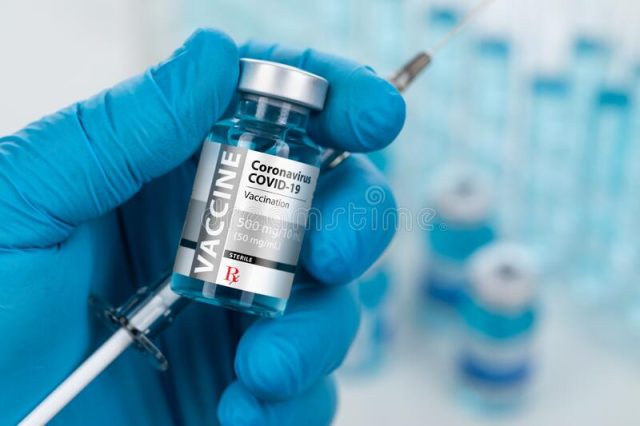
Clearly being ignored by the mainstream media (MSM) and governments around the world, the alarming rise of heart problems is now becoming more visible, especially among the adolescent post-vaccination stages. Globally, more reports of myocarditis and pericarditis are coming out and even doctors who are very pro-vaxx are acknowledging that these kinds of heart damage do happen and can be associated with vaccine’s common adverse effects.
Questioning the validity of the mainstream narrative which clearly stands on denialism, the New Zealand Doctors Speaking Out With Science (NZDSOS) reported on their website last week:
“Published in the Journal of Clinical Medicine in April 2022, The Incidence of Myocarditis and Pericarditis in Post COVID-19 Unvaccinated Patients-A Large Population-Based Study is a retrospective cohort study of almost 200,000 Israeli adults diagnosed with COVID-19 prior to the vaccine rollout. NZDSOS drew attention to this study two weeks ago in a more detailed analysis of our public health concerns relating to the mass administration of the COVID-19 products referred to as “vaccines”. With the current media attention being given to heart disease and other worrying health outcomes in otherwise young and/or healthy people, we feel it is worth highlighting again.
The study findings support previous data showing that post-vaccine risk of myocarditis exceeds post-infection risk of myocarditis. They demonstrated no increased incidence of either condition in this large unvaccinated cohort over six months post-infection.”
The NZDSOS also highlighted another peer-reviewed study about mRNA COVID vaccine’s co-relation to myocarditis and pericarditis, published by Nature last June 25, 2022. On the same report, the group wrote:
“Across the total population aged 15 to 50 years in France, all cases of myocarditis and pericarditis diagnosed between May 2021 and October 2021 were compared against undiagnosed control groups. The groups were matched for age, sex and deprivation index rating (to reduce possible bias of socio-economic influences for ill health).
In comparing cases against controls, a higher proportion of cases had prior histories of myocarditis or pericarditis (the strongest correlation), of Covid diagnosis, or of having received an mRNA vaccine. The second strongest correlation was receiving dose 2 of an mRNA vaccine within seven days of symptom onset, most pronounced following mRNA-1273 (Moderna) which contains a larger dose of mRNA (100mcg compared with 30mcg in Pfizer). Causality is further discussed in our recent article Vaccine Injuries…”
Meanwhile, in July 21, 2022, the Journal of American Medical Association (JAMA) published a study named “Safety and Adverse Events Among Long-term Care Residents Receiving a Third COVID-19 mRNA Vaccine Booster Dose in Quebec”. On that study, as quoted by Clinicalnews.org, the authors wrote:
”Although LTC residents are disproportionately at risk of severe outcomes following COVID-19 infection, our findings suggest that they may also be at greater risk of post-vaccination adverse effects…“
In June, the US Food and Drug Administration (FDA) also issued a warning for Novavax, the non-mRNA vaccine. Perhaps due to the pressure from different health professionals fighting the sick official narrative, the agency finally acknowledged that there is a risk of myocarditis for the non-mRNA jab. Unknown to many health professionals around the world, unfortunately, it is producing a catastrophic effect on young people’s hearts on a massive scale.
In its briefing document on Novavax, the FDA stated:
“Myocarditis events were identified across the clinical development program, including four events of myocarditis (and one additional event that in FDA’s assessment is clinically consistent with myocarditis) within the 20-day window post vaccination. There were no myocarditis cases in the placebo arm within 0-20 days post vaccination. These events raise the concern for a causal association with this vaccine, similar to the association documented with mRNA COVID19 vaccines.
Data from passive surveillance during post-authorization use in other countries also indicate a higher than expected rate of myocarditis and pericarditis (mainly pericarditis) associated with the vaccine. However, interpretation of these passive surveillance data is not straightforward, and further evaluation is needed to inform the risk of myocarditis and pericarditis associated with this vaccine, and their outcomes, as additional data emerge over time.
One case of Guillain-Barre syndrome was observed in the clinical development program, in temporal association post-vaccination, and without an identified alternative cause. Guillain-Barre syndrome is known to be associated with other vaccines.”
It is important to notice that Novavax is not the only vaccine that carries the risk of myocarditis and pericarditis. Looking at VAERS (vaccine adverse events reporting system), it is clear that Moderna and Pfizer’s mRNA COVID vaccines also have so many reports of these heart inflammations.
References:
https://nzdsos.com/2022/07/14/myocarditis-pericarditis-covid-19/
https://jamanetwork.com/journals/jamanetworkopen/fullarticle/2794464





